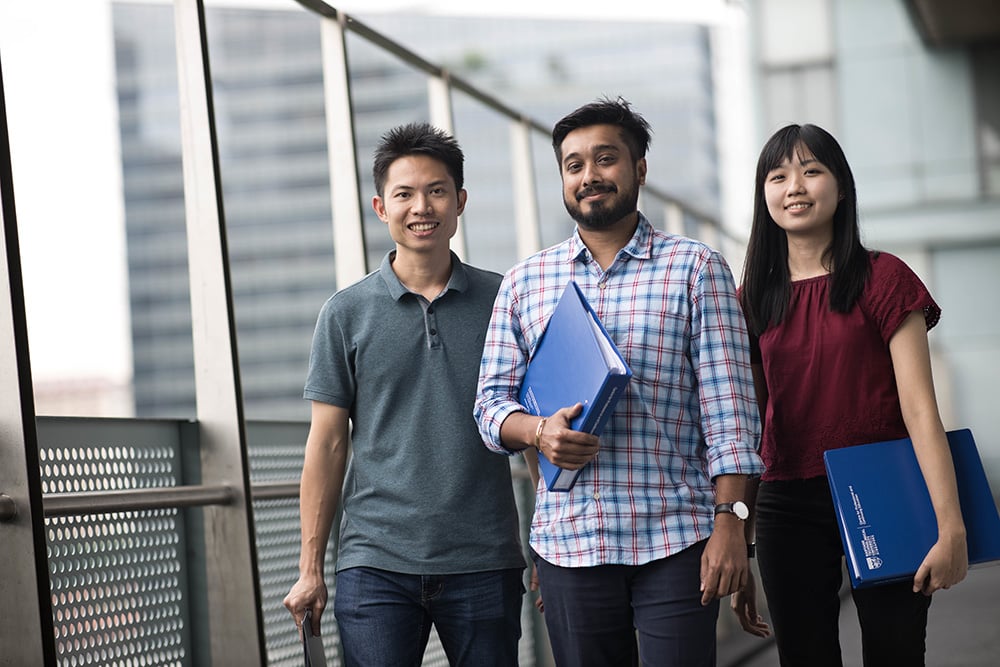Introduction
Building on the foundational skills and knowledge gained in Health Coaching for Older Adults, this intermediate 4-day programme, Health Coaching Techniques, delves deeper into specialised techniques and strategies to enhance your coaching practice. Refine your skills in advocacy, crisis intervention, and positive reinforcement, and learn to navigate complex scenarios and challenging situations. This programme is designed to equip you with the expertise and confidence to excel as a qualified health coach, supporting older adults in achieving their health goals and improving their overall wellbeing. Upon completing the course, learners will acquire the following knowledge and skills:
• Apply ethical principles and professional standards, creating a safe and respectful coaching environment.
• Support clients with mental health concerns, promoting mental wellbeing and resilience.
• Provide psychological first aid, facilitating post-traumatic growth and crisis support.
• Utilize effective techniques for self-care, stress management, and resilience in their role as caregivers for the elderly.
** Learners are required to bring a laptop for training.
Course Availability
-
Date(s): 24 Jul 2025 to 01 Aug 2025
Time: 9:00AM to 5:00PM (24, 25, 31 July and 1 August 2025)
Venue: NTU Yunnan Campus, The Arc @ NTU
Registration Closing Date: 03 Jul 2025
-
Date(s): 09 to 17 Oct 2025
Time: 9:00AM to 5:00PM (9, 10, 16 and 17 October 2025)
Venue: NTU Yunnan Campus, The Arc @ NTU
Registration Closing Date: 18 Sep 2025
Objectives
At the end of this course, learners will be able to:
- Build trust and rapport with patients and caregivers.
- Assess patients’ and caregivers’ confidence to perform activities of daily living activities.
- Guide patients and caregivers on the techniques in performing self-care and use of devices.
- Provide information to stakeholders on patients' progress in the self-care management plans.
- Provide positive reinforcements for improvement in performing self-care management.
Outline
EPHC: Ethics and Professionalism in Health Coaching
This module empowers health coaches to understand and apply ethical principles and guidelines, including confidentiality, informed consent, and respect for autonomy, to maintain a professional relationship and provide high-quality support. Additionally, it guides health coaches to establish appropriate boundaries with the individuals they support, ensuring a safe and respectful coaching environment.
HCMH: Health Coaching on Mental Health
Despite its importance, mental health is often misunderstood as solely focusing on illness and negativity, rather than encompassing the full spectrum of well-being, resilience, and positive mental wellness. This module empowers health coaches with evidence-based techniques to support clients in achieving optimal mental well-being. By focusing on positive mental health, health coaches can help clients cultivate resilience, confidence, and a growth mindset, leading to a more fulfilling life. By delving deeper into the nuances of mental health, Health Coaching in Mental Health enables coaches to support clients in achieving long-term mental wellness and resilience.
HCPFA: Health Coaching in Psychological First Aid
Unlock the full potential of Physiological First Aid (PFA) in your health coaching practice through our innovative collaboration with the Singapore Red Cross! In partnership with the Singapore Red Cross, a leading humanitarian organization, we're excited to offer a comprehensive health coaching training program that integrates PFA with evidence-based coaching techniques. While Health Coaching in Mental Health focuses on supporting clients in achieving optimal mental well-being, PFA offers a valuable complementary approach, addressing the critical intersection of physical and emotional health. You'll gain the skills to provide holistic support, identify early warning signs, and respond with confidence to clients' immediate physical and emotional needs. This empowering approach is further enhanced by our partnership with the Singapore Red Cross, leveraging their expertise in emergency response and humanitarian care to elevate your clients' overall well-being and enhance your coaching practice.
CTESCE: Coaching Techniques for Enablement and Support of Caregivers of Elderly
When the patient leaves the hospital, family caregivers often face the daunting task of managing their loved one's health conditions without adequate preparation or support. This can lead to burnout, stress, and compromised care. This module empowers caregivers with essential coaching techniques, psychosocial support, and communication skills to rebalance their life responsibilities and provide effective care. By analysing preferences and aligning them with course content, we uncover emerging health trends and provide personalized support for caregivers, ultimately enhancing the well-being of their loved ones.
Who should attend
This course is suitable for learners who are working/intending to work in the healthcare industry. Additionally, volunteers and individuals who provide support for their loved ones with chronic illnesses and/or engage with beneficiaries in health-related organisations will be able to deepen their knowledge and expertise.
This course is suitable for:
- Health coaches,
- Caregivers,
- Healthcare Assistant,
- Basic Care Assistant,
- Nursing Aides,
- Therapy Assistant
This course builds on the curriculum from Health Coaching for Older Adults (HCOA). Learners must have completed HCOA and acquired the necessary knowledge and skills before enrolling.
Fees and Funding
Standard Course Fee: S$3,052
|
SSG Funding Support |
Course fee |
Course fee payable after SSG funding, if eligible under various schemes |
|
|
BEFORE funding & GST |
AFTER funding & 9% GST |
||
|
Singapore Citizens (SCs) and Permanent Residents (PRs) (Up to 70% funding) |
S$2,800.00 |
S$915.60 |
|
|
Enhanced Training Support for SMEs (ETSS) |
S$355.60 |
||
|
SCs aged ≥ 40 years old |
|||
- Standard course fee is inclusive of GST.
- NTU/NIE alumni may utilise their $1,600 Alumni Course Credits. Click here for more information.
Trainers

Prof Theng Yin Leng
Biography
Prof Theng specializes in user-centred design, interaction design, and usability engineering. Since returning to Singapore over the past 20 years, she has secured research grants totalling over $13 million as a Principal Investigator (PI). These grants, awarded by A*Star, MOH, and NRF, support projects in telehealth, patient care, elderly care, and technologies. Dr. Theng has been involved in numerous research projects as a PI, Co-I, and collaborator, and she has more than 200 publications published widely in international journals and conferences.
Prof Theng, is also the Lead PI for the curriculum design, that offers the 2-day Health Coaching for Older Adults training which is offered by NTU Centre for Professional and Continuing Education (PaCE), since March 2021.

Prof Ho Hau Yan Andy
Head, Psychology, School of Social Sciences (SSS)

Assistant Professor Paul Victor Patinadan
Assistant Professor, School of Social Sciences
Dr Paul Victor Patinadan is an accomplished academic with close to a decade of research experience in the field of health and wellbeing. He received his PhD in Psychology right here at NTU. Paul is also an Association for Death Education and Counselling (ADEC) certified Thanatologist and plays an active role in the Action Research for Community Health (ARCH) Lab NTU.
As a mixed-methods researcher, he specialises in psycho-socio-spiritual interventions and therapies for wellbeing (with a particular interest in End of Life care and grief/bereavement facilitation for families), the development and implementation science of such interventions, and holistic education across stakeholders within care ecosystems. He has worked on several projects with a focus on clinical outcomes for various illness trajectories, community and critical health psychology, the medical humanities, and evaluative research for health organisations. These include investigating the health behaviours and personal narratives of patient and caregiver populations, co-developing a serious game for diabetic management, and evaluating the Singaporean National Advance Care Planning Programme. Paul’s most recent work,’The Table to Console’ considers the role of food and the culinary arts for facilitating healing following the loss of a loved one. To date, he has participated in multiple international and local conferences, and has been awarded with a number of honours.

Ms H. Falina (Lin)
MSc SWD, ACLP
Assistant Director, Ageing Research Institute for Society and Education (ARISE)
Biography






